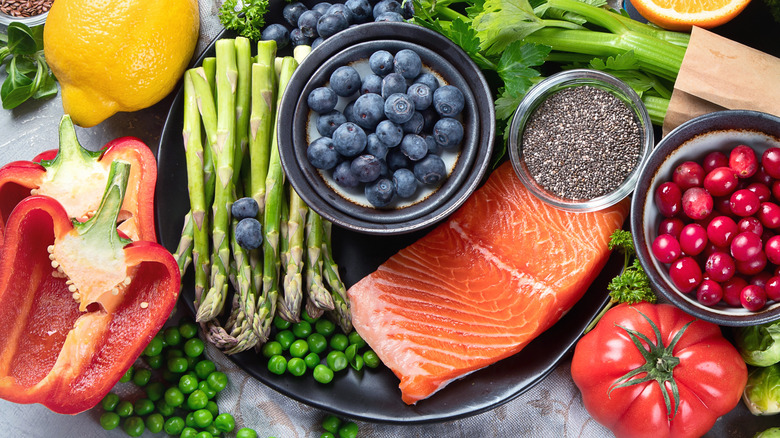The Holistic Way To Manage High Cholesterol
Heart disease is the number one killer of people in the United States, and high cholesterol, high blood pressure, and smoking increase your heart disease risk, according to the Centers for Disease Control and Prevention (CDC). The American Heart Association suggests taking a good look at your cholesterol numbers to see if you're at risk. Your LDL is the "bad" cholesterol, which you should work to reduce, and your HDL helps clear cholesterol from your arteries.
Your cholesterol can reach unhealthy levels if you have certain medical conditions such as diabetes, according to the Mayo Clinic. You can also be at risk for high cholesterol if you eat high-fat meat and dairy, if your body mass index (BMI) is 30 or higher, or if you smoke. Drinking in excess can also boost unhealthy levels of cholesterol.
To help you manage your cholesterol, your doctor might prescribe statins, but these can produce side effects such as muscle aches and digestive problems (via Healthgrades). Your doctor might also add a medication that limits the amount of cholesterol absorbed in your body. However, you can take a holistic approach to reducing your cholesterol by making changes in your lifestyle.
Lifestyle changes to reduce your cholesterol
You can manage high cholesterol through your diet by reducing saturated and trans fats and eating more fruit, vegetables, and whole grains (via American Heart Association). Choose chicken and fish as your main source of protein, and cut down on sugary foods and sodium.
There are also other lifestyle changes you can make to manage your cholesterol. Because physical activity boosts your HDL cholesterol, aim for at least 30 minutes of moderate activity five days a week. If you quit smoking for a year, your risk of heart disease will be cut in half (via Mayo Clinic).
Some supplements might reduce your cholesterol. According to WebMD, whey protein could reduce your LDL, but check the label for any added sugar. Policosanol, which comes from sugar cane, can manage cholesterol, but some supplements sold in the United States extract it from beeswax, which hasn't been found to affect cholesterol levels. Some herbs such as fenugreek, holy basil, and artichoke leaf extract may have cholesterol-reducing properties.
According to Healthline, sterols and stanols, which are found in most plants, can limit cholesterol absorption. Some foods, such as yogurt and margarine, are fortified with these ingredients.


